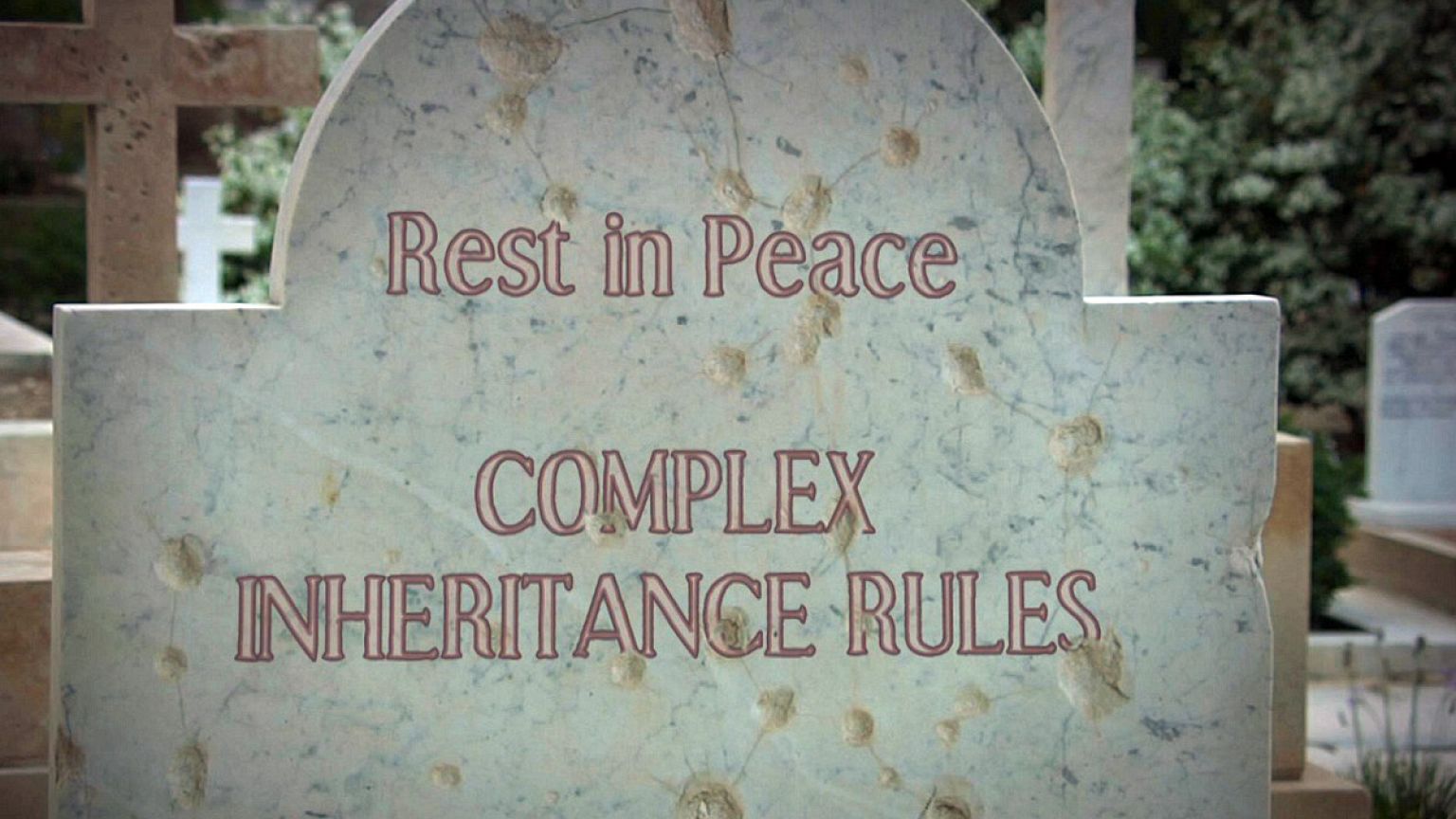When it comes to the subject of death and dying, many of us prefer not to talk about it. And that is also the case in terms of making preparations before we die: the complexities of inheritance procedures. The process can turn into a legal headache for all concerned, but it can also become very expensive.
Administrative stress is the last thing families need after a loved one has passed away. And imagine what it is like when the deceased has property in more than one country.
With many Europeans making the most of borders disappearing, officials estimate that every year up to half a million families are involved in cross-border inheritance.
Visit a place like the Republic of Malta and it is easy to see why the subject has become so important. Popular with foreigners, this is one of the countries where the question often comes up.
Right On met a Dutch man, Wilfried Tops, who retired in Valletta with his wife, and who has been struggling to sort out a last will and testament after a health scare.
His situation is far from simple: Wilfried has residency in Malta, Dutch nationality and lived and worked in the UK and Germany, where his two children were born. He also has property in Switzerland.
Perhaps it is no surprise that he is still attempting to arrange his affairs, to ensure that his estate will be easily passed on to the next generation.
Wilfried, a retired businessman, told euronews: “I thought the best way was maybe to consult lawyers in the various countries where I had property and/or possessions, and to ask them to represent any one of my children and/or grandchildren and see what was the best for them, in order to then find out where the crossroads came. And it was almost a Georgian knot. It was absolutely impossible to be fair, as I said, to all.”
The Tops family is happy to hear that EU politicians passed a new law over the summer that aims to simplify the procedures and reduce the cost.
Cross-border cases will now be settled in one jurisdiction, with a single criterion used to determine the law that applies: namely, the deceased person’s habitual place of residence.
However, those preparing a testament can also now choose to have the law of the country of their nationality applied to the totality of their estate, even if they live somewhere else.
EU countries have very different inheritance rules. Some give people less choice, making it obligatory, for example, to leave equal shares to children.
Member states now have three years to adopt the changes, although the UK and Ireland decided to opt out of the reform over various issues. Denmark is also not affected by EU justice matters.
In a report in 2010 the UK House of Lords EU Committee said: “We identify, as a serious defect in the proposal, that it could result in gifts made in the UK by deceased persons during their lifetime, including gifts to charity, being claimed back by their heirs, under a process known as clawback.”
The UK does not have clawback, but other EU states do, meaning another nation’s law might have been applied in Britain.
In Malta, which also voiced opposition to the reform, a special committee will oversee what is expected to be a difficult transition.
Dr. Clinton Bellizzi, President of the Notarial Council of Malta, said: “It was approached with caution and a bit of trepidation, in the sense that we don’t know exactly how it’s going to translate in normal day to day working, because it’s a complete departure from what we’ve been used to and from legal principles that we’ve been accustomed to when settling inheritances, even cross-border inheritances.
“It’s still uncertain whether it’s going to work out, and the proof of the pudding is actually in the eating.”
Euronews’ Seamus Kearney reported: “To learn more about the impact of the new law, we’ve come here to the northeastern French town of Forbach, right on the Franco-German border.
“Lawyers and notaries here often deal with cross-border cases and they say the reform could result in big changes for those with property and assets in both countries.”
With the pulling down of borders, an increasing number of people are working and living in both countries, and naturally building up assets and interests in both places.
Another part of the new law is the introduction of what is known as a European Certificate of Succession.
Officials say this will prove people are heirs or administrators of an inheritance, without any further formalities across the EU.
Near Forbach Right On met Angelo Giangreco, an Italian with a business in Germany and a home in France.
He has not yet drawn up a will, and told us he supports every effort to make cross-border procedures easier.
Giangreco told euronews: “I have a company that makes elevators for various clients abroad: in France, in Belgium, in Luxembourg, also for Italians. My children grew up bilingual. Their mother is German, I am Italian, they speak French and German.
“Of course it is very very interesting, especially for my children, that at some point laws will be harmonised all over Europe. For example if you want to be self-employed, plan to set up a company or start a family.”
Some notaries in the region say a third of their clients are involved in cross-border issues, in desperate need of guidance through difficult situations.
In Forbach we also found one of Europe’s leading experts on international inheritance and a big supporter of the new reform. Notary Edmond Jacoby was consulted when the law was first drawn up.
“A German living in France couldn’t say ‘I feel better off under German national law, so for all of my inheritance I will choose German law’,” Jacoby explained to Right On. “It wasn’t legally possible. There was also frustration, because the legal procedures that people had begun with a German notary, for example, had to be repeated with a French notary, for property that was situated in French territory.”
Experts stress that taxes on the assets that make up someone’s inheritance are not covered in the reform – for now they still come under the laws of individual states.
And their main tip when it comes to inheritance is no surprise: plan well ahead, with good legal advice.















